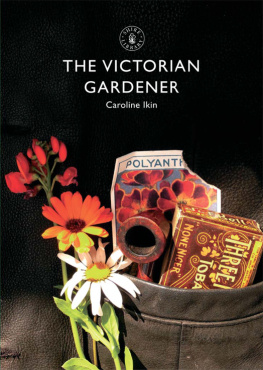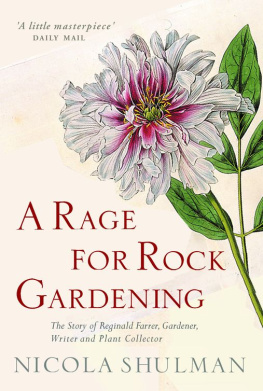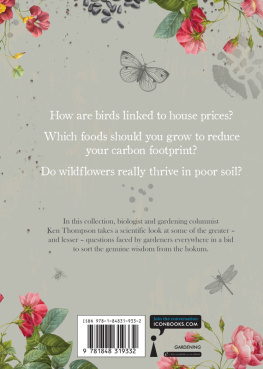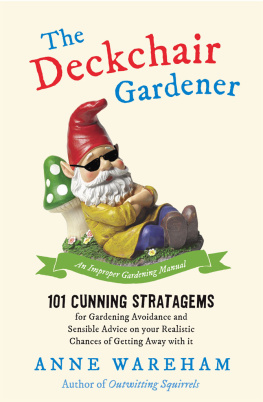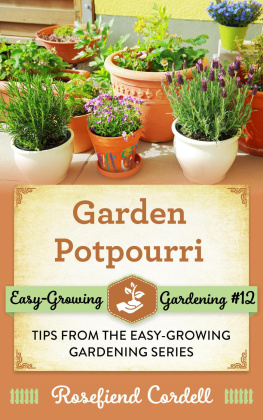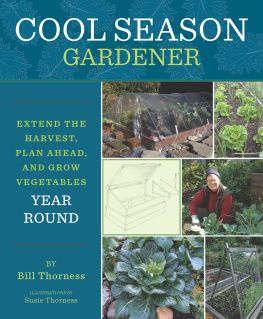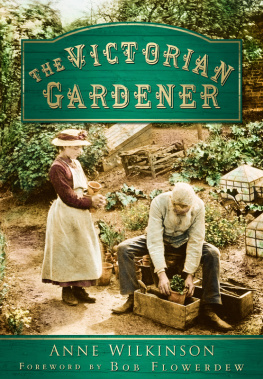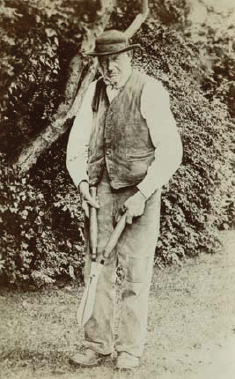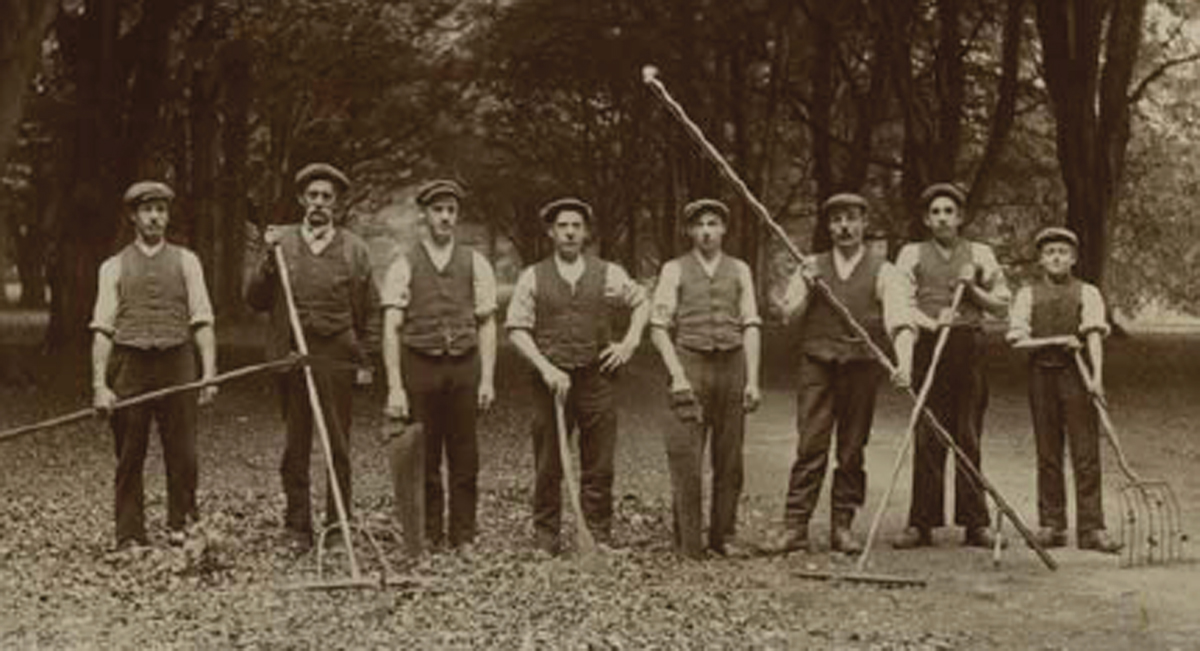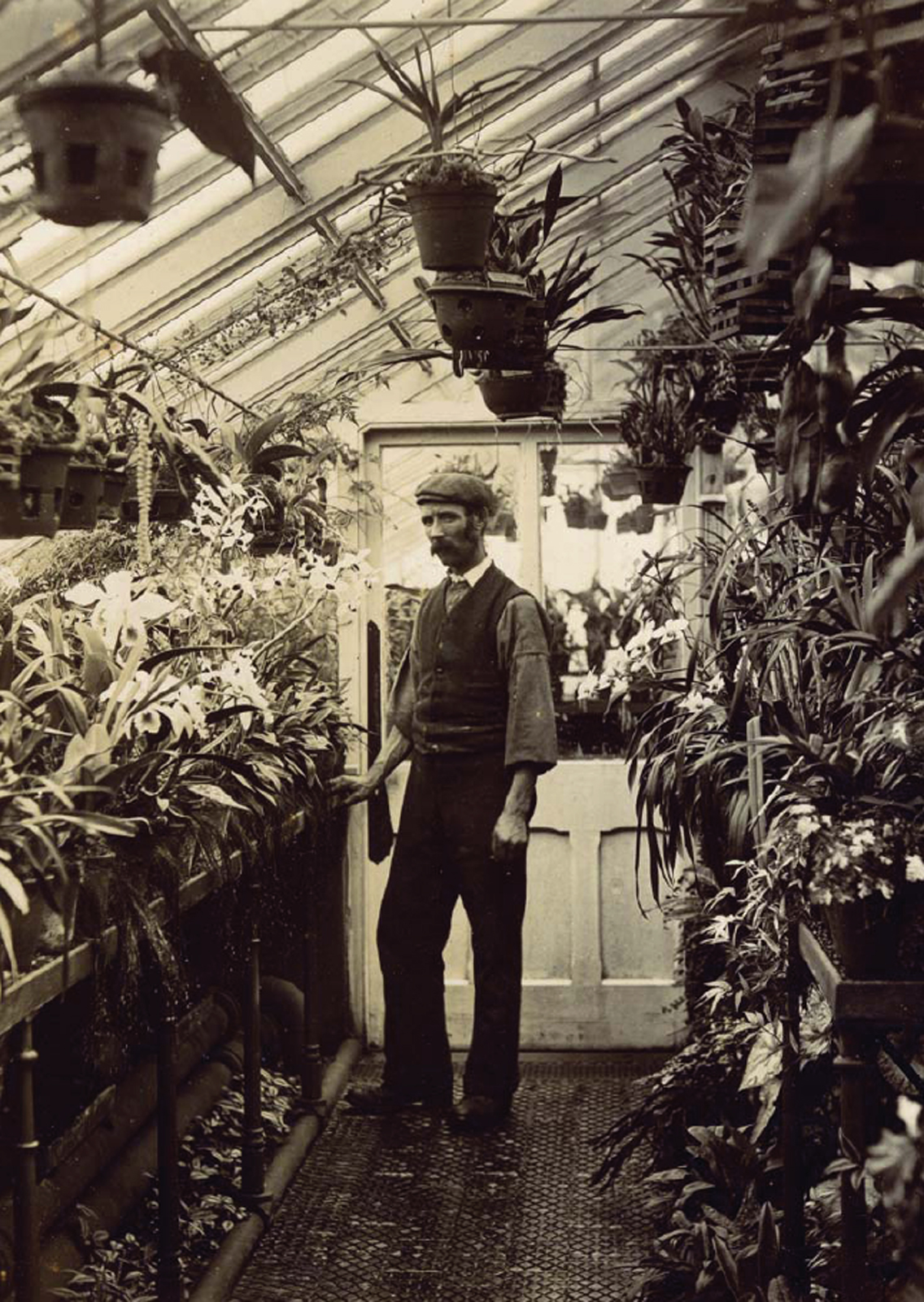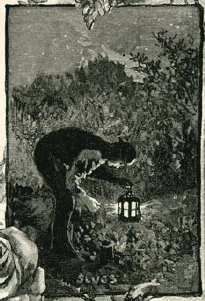THE VICTORIAN GARDENER
Caroline Ikin
With no welfare state to provide for them, many gardeners were obliged to work on into old age.
SHIRE PUBLICATIONS
A group of gardeners with the tools of their trade, c. 1910.
CONTENTS
INTRODUCTION
T HE VICTORIAN ERA , and the subsequent years up to the outbreak of the First World War, were a time of great social change. The rise of the middle classes and the increasing freedom enjoyed by women had a huge impact on the gardening profession, and advancements in science and technology brought increased status to horticulture. By the mid-nineteenth century gardening was a flourishing profession. Britain was enjoying peacetime prosperity, with low taxes and low inflation, and many landowners were making money from mineral extraction on their land or by investment in the new railways. Gardens were being created, improved and expanded across the country and demand for gardeners was high. The need for outdoor staff was matched by the increasing numbers of workers employed indoors, with Victorian households run with exacting precision by an army of domestic servants.
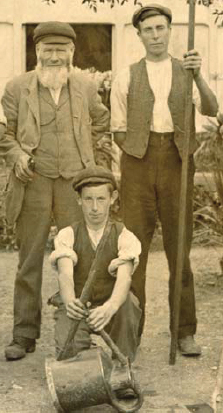
Horticultural skills were passed down through the generations, with the garden boy learning his trade from the experience of older gardeners.
The head gardener ranked professionally alongside the butler, but although he was necessarily better educated and undertook a more rigorous training he was paid substantially less. The indoor and outdoor servants were managed separately and generally segregated, with only the head gardener having any need to cross the threshold of the house. The cook was reliant on the head gardener to provide produce for the kitchen, and a good working relationship was required to ensure that culinary needs were met, with fruit and vegetables arriving as expected and in the necessary quantities. The provision of flowers for the house would also be carefully arranged between the head gardener and the housekeeper to minimise the risk of a member of the family meeting a servant unexpectedly or encountering a bloom past its prime.
The number of servants employed in private service, both indoors and outdoors, peaked in 1871. The agricultural depression of the 1880s prompted cutbacks in staffing, as incomes from land plummeted, and the outbreak of the First World War signalled the end of the heyday of domestic service. Not only was the amount of labour available reduced by the demands of war, but post-war taxation crippled many aristocratic households and changing social attitudes resulted in an unwillingness of the working classes to return to the days of subservience. After the war, this combination of high taxes and labour shortages resulted in many large estates being sold, with gardens scaled back or neglected, glasshouses destroyed and costly bedding schemes abandoned. The skills of generations of gardeners were lost in the conflict, and the pre-war extravagance that had created so many gardens was replaced by the post-war austerity of their decline. This, combined with the expansion of the middle classes living in smaller country houses and suburban villas, created a new kind of gardener. Many amateur gardeners were now, through choice or necessity, able to manage their own gardens, assisted by gardening manuals and labour-saving devices such as the lawnmower. The gardener as a servant had been displaced, and the gardening profession began to take on its modern characteristics.
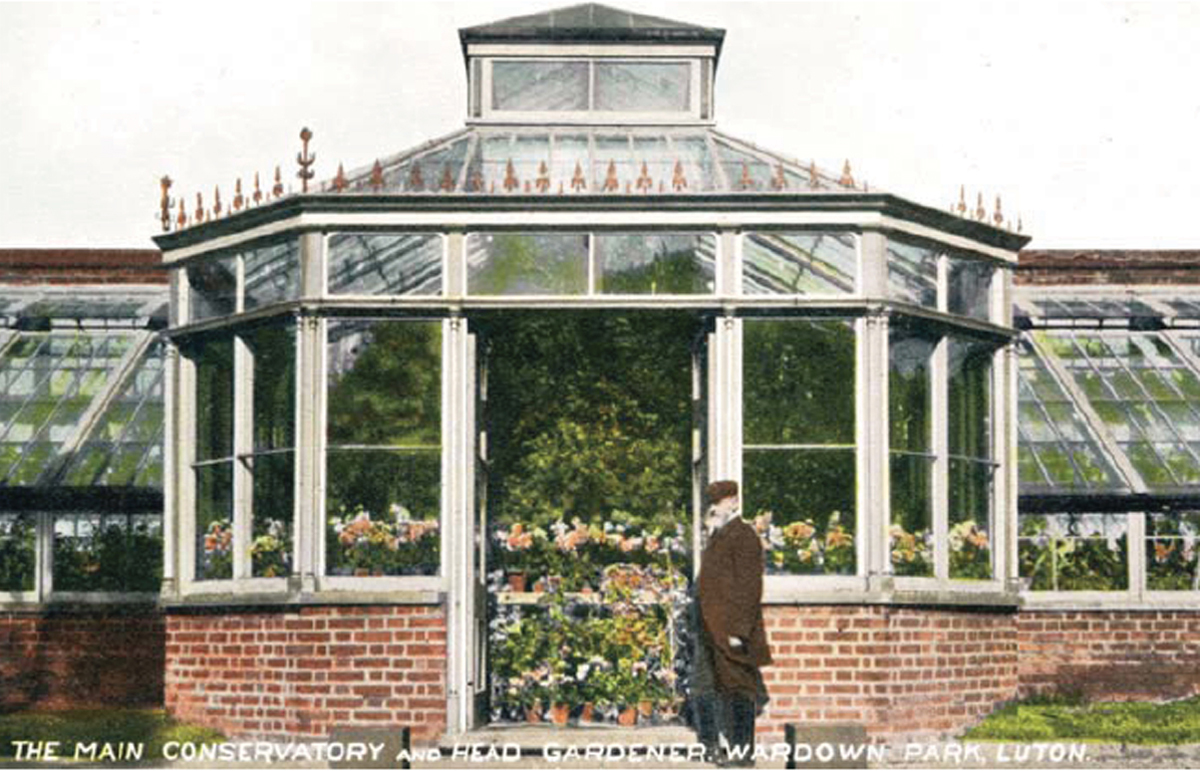
The head gardener at Wardown Park near Luton, photographed in 1906, presided over work in the garden departments. His professional ranking was akin to that of the butler, who managed the house staff.
Many enthusiasts built their own orchid houses to display their collections, as in this photograph from c. 1910.
A CAREER IN GARDENING
G ARDENING was regarded as a respectable profession, with good opportunities for advancement for a hard-working young man intent on self-improvement. Apprenticeships enabled the passing-on of practical skills from experienced gardeners, and books and manuals facilitated private study. A would-be gardener had to take charge of his own career, securing funding for his apprentice fee, identifying the best gardens in which to learn his trade, being willing to travel around the country to gain experience, and making contact with influential gardeners who might provide a step up the ladder of advancement. After a hard day at work, the ambitious young gardeners labours were not over: he might spend the evening studying books on botany, geometry and plant physiology, or attending lectures on natural history.
A gardener working on a private estate was entering a profession with a hierarchy just as stringent as that found in domestic service. The head gardener was in charge of the gardeners in the same way that the butler directed the indoor staff, each commanding the respect and obedience of his workforce. At the bottom of the career ladder was the garden boy, who, at around twelve years of age and with a decent education, was expected to undertake the most menial of garden tasks, such as washing pots, picking slugs from plants and scaring birds. After around a year of service, the garden boy would be taught how to prick out seedlings and tie in wall plants, and would be engaged in repetitive tasks such as these, gaining basic skills around the garden and practising horticultural techniques.
At sixteen years of age, a boy could progress to become an under-gardener, getting a good grounding in all departments of the garden and learning technical skills from his superiors. At this point, an ambitious young gardener might apply for a position in a different garden to gain a broad range of skills and experience before moving on to become a journeyman gardener.
Journeymen had a peripatetic working life, moving from garden to garden to develop skills in all areas of horticulture. Advancement was self-motivated and it was up to the individual to identify suitable gardens in which to seek employment. A renowned head gardener could offer high-quality training and bestow recommendations for advancement, but he would be looking for only the most ambitious and talented young gardeners to work under him. A journeyman might also seek work in a nursery establishment to learn propagation skills and to become familiar with the cultivation of newly introduced plants, and working in different parts of the country would provide experience of various growing conditions and the merits of different types of soil and climate.
Next page
